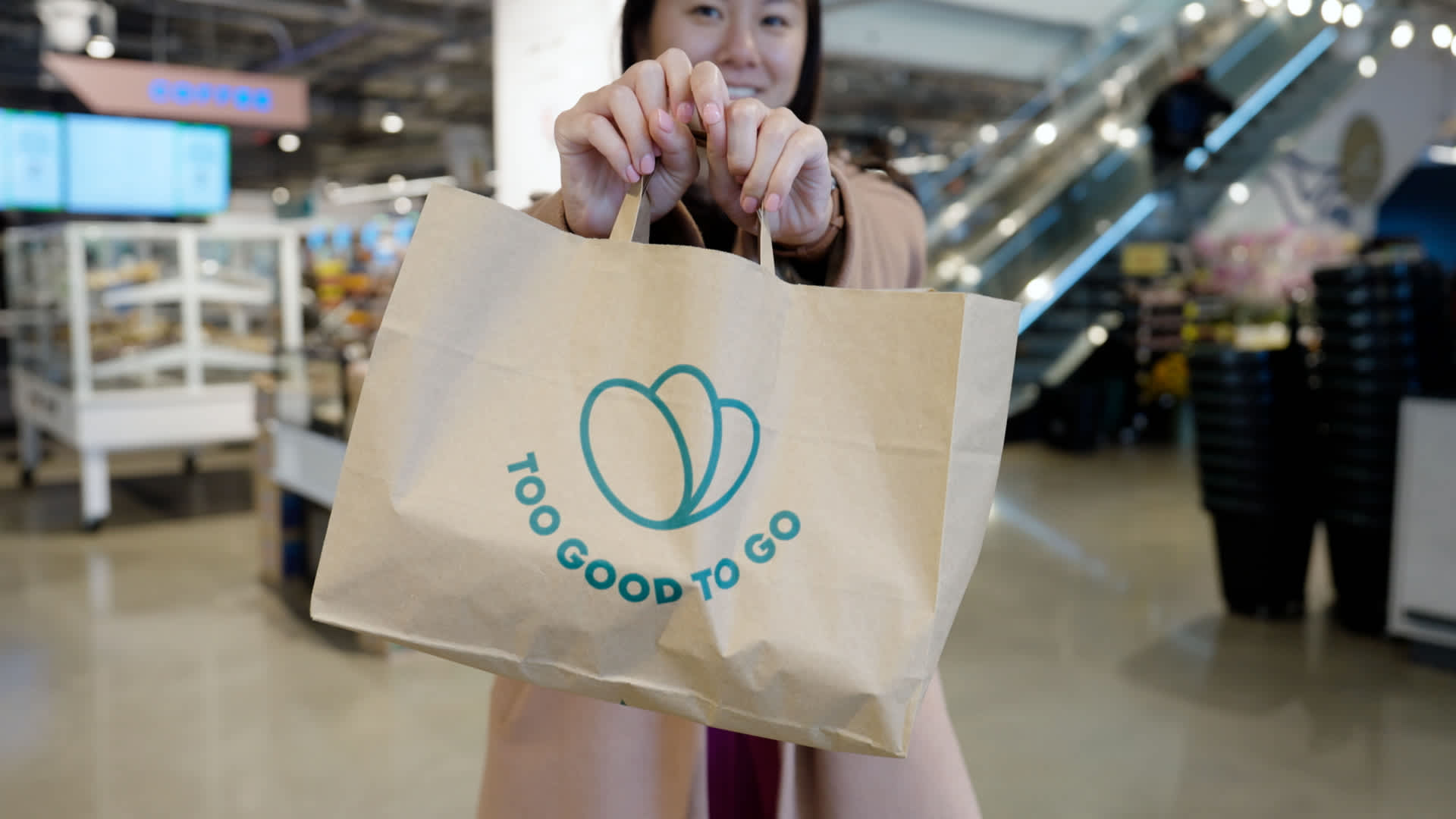Too Good To Go launches grocery bags with Whole Foods as food costs climb

As food prices climb, Too Good To Go is launching grocery bags with Whole Foods Market, in a major expansion of its push to lessen food waste and provide affordable meals.
Too Good To Go is an app that connects users with stores and restaurants that offer surplus food in “surprise bags” at significantly lower prices. Its collaboration with Amazon‘s Whole Foods will expand to all 536 of the grocer’s locations across the U.S., where the two companies said they have already saved 1.6 million meals from going to waste through their partnership.
Too Good to Go announced seven new categories of surprise bags with Whole Foods on Wednesday: produce, seafood, meat, dry goods, frozen foods, refrigerated foods and floral. Chris MacAulay, vice president of operations for North America at Too Good to Go, said the collaboration is a win for both consumers and the grocer.
“We have this opportunity to bring incremental foot traffic into the store,” said MacAulay. “The consumers that come in are getting tremendous value when they pick up a surprise bag, they don’t know what they’re going to get, but they do know that they’re getting incredible food somewhere between 50% to 70% discounted.”
The move is an expansion of an established partnership between the two companies, which previously included prepared foods bags and bakery bags. Shoppers using Too Good to Go will now be able to get fresh groceries at Whole Foods for the first time. MacAulay said the expansion comes as the company focuses on providing affordable meals while consumers navigate rising prices in the grocery aisles and elsewhere.
According to the latest consumer price index report, prices in four of the six major grocery store food groups increased in September. Prices for staples like meats, poultry and eggs rose 5.2% over the year prior to that data release, while fruits and vegetables saw a 1.3% increase. More recent inflation data has been delayed by the government shutdown.
Because of the lapse in federal funding, 42 million Americans saw their SNAP benefits paused as a battle played out in the courts about whether the government is required to pay that aid to largely lower-income households.
Companies are also seeing a more divided economy, as non-wealthy consumers pull back on their spending on non-essential items and look for ways to save.
“I think we’re especially starting to see a great deal of bifurcation around different consumer segments,” MacAulay said. “It’s hard to put great food on the table, it’s getting more expensive, and as a result, finding ways to get some of that food at a better value is really important. And so we’re not going to be the only solution – I think we’re excited about being a part of a solution to help families who are facing economic challenges.”
The new surprise bags, targeting consumer essentials like produce and poultry, are each valued between $21 and $30, but priced at $6.99 to $9.99.
It’s part of a larger goal from Whole Foods to deliver on sustainability promises, according to Caitlin Leibert, the grocery chain’s vice president of sustainability. She said the company has already seen high demand for its existing Too Good To Go bags and is increasingly seeing customers come in to pick up their bags and make additional purchases on the side because of the overall savings.
“This is really an incredible opportunity and added tool for Americans to stretch every dollar further right now, which we know is so important,” Leibert said. “This is one way that you can access higher quality food at a more affordable price.”
Whole Foods isn’t immune from the macroeconomic headwinds, either, Leibert said – but the collaboration with Too Good To Go allows the grocery chain to find alternate ways to make its products affordable and accessible for shoppers.
Still, both Leibert and MacAulay said the new grocery bags are just one step in a longer path toward promoting sustainability and providing affordable meals.
“We do not ‘achieve’ sustainability – it is a constant evolution of growth and improvement,” Leibert said. “These programs… [are] such a profound way and accessible way to make an impact easily.”
